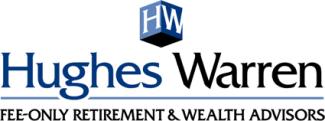
Should You Use Your Retirement Savings to Start a Business?
Retirement looks different to different people. Some envision a time of relaxation and travel. Others view this time in life as an opportunity to connect deeper with a partner or pursue those hobbies that were always difficult to find time for while amid a career. For others, retirement is just the second act of life. This is a time when some opt to start a new career as their own boss. It is possible to use your retirement savings to start a business, but there is an upside and a downside to everything. If you are considering starting a business in retirement, be sure you know both the pros and cons of using retirement savings to fund that business.
Who's Eligible?
The most common way to fund a new business with retirement savings is through a Rollover for Business Start-Ups, also referred to as ROBS. This is an option for any individual with an existing 401(k) plan who would prefer not to take on a loan from a bank or other lender or those who do not have the cash on hand to buy or start a new business. If you are younger than 59 1/2, you can borrow from the account without incurring early withdrawal fees or tax penalties.
If you borrow from an IRA without the use of a ROBS loan, you will face standard income taxes and 10% early distribution fee on a traditional IRA plan or just the 10% early distribution fee on a Roth IRA. If you are over 59 ½, you can borrow from these accounts without tax penalties, though you will pay income tax on traditional IRA withdrawals.
How Much Can You Borrow?
When borrowing from a 401(k) to start a new business, you can borrow the lesser of 50% of the plan account's value of $50,000. You will have 5 years to pay back the amount you remove from the accounts and will face interest on the loan, which is typically set at Prime level.
What Happens if You Can't Pay Back a 401(k) Loan?
If you are unable to pay back the loan within the five years, it is considered in default. As a result, you will be taxed on the outstanding balance and incur an early withdrawal penalty if you are not at least 59 ½ years old.
Pros and Cons
Now that you know the ins and outs of a ROBS plan, it is time to better understand the pros and cons you face with this decision. The pros are somewhat limited when compared to the cons. On the upside, using retirement savings to fund or buy a new business is an alternative means of securing capital without worrying about personal credit or positive cash flow. You will not take on debt because the money you are borrowing is your own, and if you pay back the funds, and if you withdraw your money through a ROBS plan, you avoid penalties and taxes.
On the other hand, there are several drawbacks to keep in mind. First and foremost, you are going to miss out on compound interest and increased value in your retirement savings by removing some of the capital in that account. If you use a ROBS plan to withdraw retirement savings, you must operate the new business as a C Corporation, which opens you up to tax implications you would not face as a sole proprietorship or Limited Liability Company (LLC). Lastly, you are putting your retirement at risk. If the business you buy or open fails, you have lost a significant chunk of your nest egg as a result.
If you have any questions about this article or any of our other articles, contact us at Hughes Warren today.

